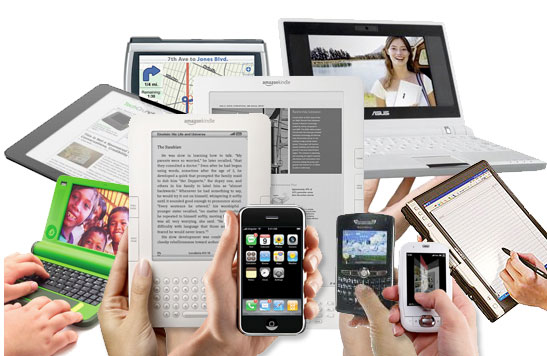I had the incredible privilege of writing an article for the Simple Focus blog regarding student use of technology in the classroom. I enjoyed sharing about our thinking and practice at North Cobb Christian School. I’ve posted the article below…
BRING YOUR OWN DEVICE
Do you remember what an awesome privilege it was to be asked by your elementary teacher to help advance the slide show? For me, that was back in the mid-80′s and the slides were actually small squares inside a cartridge that rotated such that light would show through the slide and project an image on the wall.
The students of today think that sounds absolutely ridiculous as they quickly pull out their iPhone to create a Keynote presentation to show in their next period class.
They never even have to take a break in the conversation they are having with their friends while they search Google images to grab a few pictures to include in their presentation. Two clicks later, they have embedded a YouTube file and emailed the whole thing to their teacher just under the deadline before the bell rings.
It is sad to see how many schools miss this opportunity to see their students’ technology skills at work due to a blanket “No Technology Allowed” policy on campus.
At North Cobb Christian School, we have a Bring Your Own Device (BYOD) policy for our Upper School students. It is not a perfect process and some days, it is downright messy. We feel like this is the best way for our students to embrace the 21st century learning skills we are trying so hard to embrace and emulate in our classrooms.
Collaboration, communication, creativity, and critical thinking skills are four major tools that we believe our students need in their tool belts to be successful in life. We have an “all hands on deck” mentality in this endeavor.
Our teachers are very confident in their ability to challenge the minds of our students as we work together to raise up a generation that is truly going to impact culture in a positive way. They are so confident in their abilities, that they have willingly given up some of the control in their classrooms in order to give their students a chance to truly experiment with the ideas of respect and responsibility.
We live in a global economy and technology has allowed us to make the world our playground in the field of education. When we are teaching about Modern European History, we could read a book about it, or we could Skype with a NCCS parent who is on a business trip to Romania as he walks us around The People’s House in Bucharest.
At the beginning of a unit on force in physical science, students can use their iPads to create a Wordle of everything they know about force and even grab a few images and video clips to refresh their memory while brainstorming.
We have done a good bit of research into different strategies with our wireless network, internet filters, and other items related to the infrastructure of having almost 700 devices online at the same time during any given day.
We have some days that go awesome and everything is clicking away on all cylinders. We also have those days that start with the network down and everyone twitching as they detox from their devices until the internet connection is restored.
When we first introduced the BYOD concept, several people were concerned that we wouldn’t have enough electrical outlets to keep everyone charged up. That has never been an issue in our three years with this program. It just takes one time for a young driver to run out of gas for them to learn that you have to remember to fuel up.
We have incorporated a mix of intentional professional development for our teachers, but honestly, the most effective PD in this area usually comes on the fly and is often communicated by students sharing great resources they have found.
Technology has allowed us to open doors of learning that have been closed for far too long. We are able to introduce our students to exciting adventures that used to only be available to a privileged few.
Our students are truly starting to understand that they can be anything they want to be based on the opportunities technology has provided for them to network around the world, to virtually visit places thought to be out of reach, and to collaborate with others that have gone before and blazed paths to learning in hopes that others will contribute to the conversation. Grab your device and come join us!

